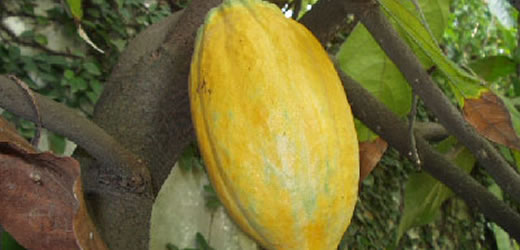Across the globe, majority of the children are working in small-scaled, often family-owned farms, making small farmers an important actor and stakeholder to engage with in the fight against child labour working in the agricultural sector. However, small farmers are often missing in the various debates and platforms for eliminating child labour. For instance, many of the trade unions in the agriculture sector do not represent the small farmer.
Coopérative Agricole Kavokiva du Haut Sassandra - a cooperative of farmers making efforts in tackling child labour in Cote d’Ivoire is an example that reasserts the importance of engaging with farmers, especially small farmers for child labour elimination.
Kavokiva is a cooperative of around 5817 farmer members. While majority of the members (i.e., 4500) are small farmers, more than half of the farmers operate on less than two hectares of land. Kavokiva is working towards improving the social and economic position of its members by supporting the production and marketing of cocoa and coffee using the principles of fair trade. It guarantees a minimum (and best) price to the farmer members for their produce which is set at a fair level to help improve the living conditions of farmers.
As a cooperative of farmer members, Kavokiva is taking several steps to address the employment of children in the agricultural sector. Kavokiva creates awareness amongst its members on the employment of children on the farms. It also has a Child Labour Charter in place which members are required to abide by prior to receiving their fairtrade certification. This helps to ensure that farmers produce cocoa and coffee that are child labour free. It has set various local committees for the implementation of the Charter by the members as well as for educating and sensitising members on child labour and its harmful effects.
To support education of children, Kavokiva provides financial assistance such as by providing tables and benches in schools, fees, provision of canteen facility, etc. It also provides assistance to families to ensure education and learning of their children by supporting creation of income-generating activities and access to micro-loans to households. To create conditions for development of children, it supports setting up of recreation areas (for example, playground), learning centers of communication and entertainment (for access to television, internet, etc.), and libraries in village schools.
Kavokiva also actively participates in the campaigns and symbolic days on the elimination of the worst forms of child labour such as June 12- the world day against child labour, the world fair trade day, etc. Kavokiva’s commitment in the fight against child labour has earned it a place among the 18 members of the National Committee for monitoring actions in the fight against trafficking, exploitation and child labour, which is chaired by the First Lady of the country. Its commitment has also earned the confidence of ILO-IPEC which has provided a grant to run an action programme for provision of basic education, prevention and rehabilitation of 1500 children at risk or victims of the worst forms of child labour.
---------------
The article is based on the presentation made by Mariame Toure Yaya, Coopérative Agricole Kavokiva du Haut Sassandra, Cote d’Ivoire at the International Conference on Child Labour in Agriculture, Washington D.C.


